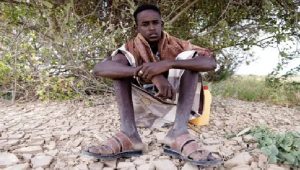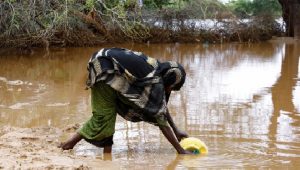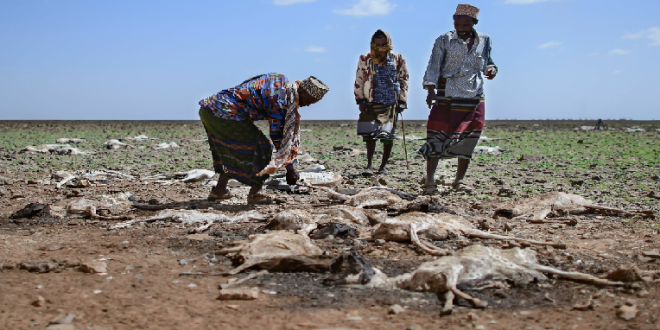19-09-2024
MOGADISHU: Somalia may be one of the poorest countries in the world and beset by violence, but it is “fixable”, according to its top climate official.
The country has been torn apart by more than 30 years of overlapping conflicts including an Islamist insurgency, a civil war, and a series of regional and clan confrontations. Yet Abdihakim Ainte, the Somali prime minister’s climate advisor, still regards his country as “as story of potential of promise”.
 What makes his optimism all the more surprising is the fact climate change is amplifying virtually all the challenges his country faces.
What makes his optimism all the more surprising is the fact climate change is amplifying virtually all the challenges his country faces.
One commentator described climate change as a “chaos multiplier”, because it exacerbates existing tensions and entrenches conflict in fragile states like this but Somalia, the easternmost country in continental Africa, can’t be held responsible for our changing climate. The figures are staggering. Somalia has emitted roughly as much carbon dioxide from fossil fuels since the 1950s as the US economy does in an average three days.
The most obvious effects of climate change here have been in agriculture. Somalia is still overwhelmingly an agricultural economy, with about two thirds of the population depending on farming and animal herding for most of their income.
In 2022 the country experienced its worst drought for 40 years, an event scientists estimate was made 100 times more likely by human-caused climate change.
The extent of the challenge Somalia faces became clear as the convoy of International Red Cross (ICRC) Land Cruisers we were travelling in rumbled into the dry scrub that covers most of the country. We were accompanied by three guards clutching AK47s Somalia is the only country in the world where Red Cross staff travel with armed security as standard.
The camel herders and small-scale farmers we met are on the front line of climate change here. For thousands of years Somalis have been eking out a living moving their herds of camels and goats from one pasture to the next across this dry land but climate change is disrupting the patterns of rain that made this way of life possible.
 Sheik Don Ismail told us he lost all his camels during the drought, when grazing grounds dried up and the fodder he grew on his small farm wasn’t enough to sustain them.
Sheik Don Ismail told us he lost all his camels during the drought, when grazing grounds dried up and the fodder he grew on his small farm wasn’t enough to sustain them.
“The well became dry and there was no pasture, so the animals began to die,” he said, shaking his head. “The life we lead now is really bad, really bad.”
That drought left farmers and herders fighting for access to water and pasture. Sheik Don said he was sometimes forced to defend his land at gunpoint.
“There is no respect if you don’t have a gun,” he said. “The herders who lead their animals into the farm stay back when they see my weapon. They get scared.”
In a country divided into rival clan groups and already scarred by violence, these localized disputes can easily spiral into full-blown battles, said Cyril Jaurena, who runs the ICRC operation in Somalia.
“Access to boreholes and pastureland gets more and more difficult to find, and so the population in the area might end up fighting competing for those resources, and sometimes it goes to people shooting at each other,” he warned and drought isn’t the only problem here. Last year Somalia experienced terrible floods as a result of rains scientists say were made twice as intense by human-caused global warming. The floodwater washed away precious soils killing hundreds of people and displacing one million others.
The effects of Somalia’s climate change “double whammy” are all too evident in the hunger clinic the Red Cross runs in a hospital in the port city of Kismayo on the south coast. (Int’l News Desk)
 Pressmediaofindia
Pressmediaofindia




